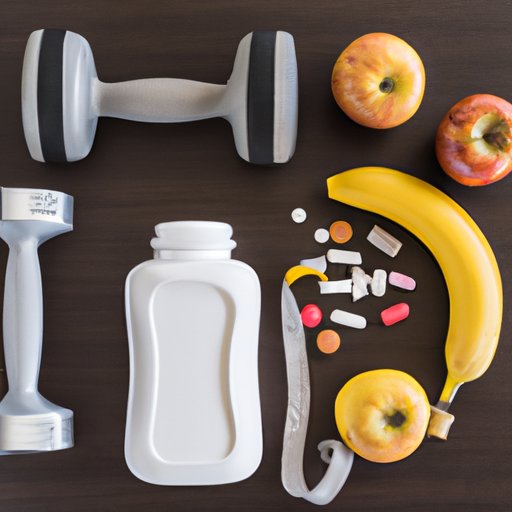
Introduction: The Challenge of Losing Weight and Gaining Muscle
Have you ever found yourself struggling to lose weight while also trying to build muscle? It can be a frustrating challenge, but achieving both goals can bring profound benefits to your health and fitness. Losing excess body fat while also building muscle mass can lead to improved body composition, increased strength and endurance, and better overall health. In this article, we’ll explore how to lose weight but gain muscle, offering practical tips and advice to help you meet your goals.
Incorporate Strength Training
Strength training is an essential component of building muscle and burning calories. It involves using resistance to challenge your muscles, causing them to adapt and grow stronger. Effective strength training exercises include weightlifting, bodyweight exercises, and resistance band workouts. When incorporating strength training into your routine, start with lighter weights and gradually increase resistance. Focus on compound exercises that work multiple muscle groups, such as squats, deadlifts, and bench presses.
Increase Protein Intake
Protein is critical for muscle growth and maintenance, providing the building blocks needed for muscle tissue repair and growth. Depending on your body weight and activity level, you may need to increase your protein intake to support muscle growth. Good sources of protein include lean meats, fish, eggs, dairy products, beans, and tofu. Try to incorporate protein into every meal and snack, such as adding protein powder to smoothies or eating protein bars as a snack.
Consume Complex Carbohydrates
Complex carbohydrates are essential for sustained energy and muscle preservation. Unlike simple carbohydrates, which are broken down quickly and cause spikes in blood sugar levels, complex carbohydrates are broken down more gradually, providing a steady stream of energy for your muscles. Good sources of complex carbohydrates include whole grains, vegetables, and fruits. Try swapping processed snacks for whole-grain crackers or adding more veggies to your meals to increase your complex carbohydrate intake.
Get Enough Rest
Rest is critical for muscle building and recovery. Aim to get 7-9 hours of sleep each night, and try to maintain a consistent sleep schedule. Stress and fatigue can also impact muscle recovery, so it’s essential to manage stress levels effectively. Try incorporating relaxation techniques into your routine, such as deep breathing or yoga, to promote rest and recovery.
Stay Hydrated
Water is essential for muscle function and recovery. Aim to drink at least 8-10 glasses of water each day, and consider carrying a refillable water bottle to ensure that you have access to water throughout the day. You can also increase your water intake by drinking herbal tea or adding fruits and vegetables with high water content to your diet.
Eat a Balanced Diet
A balanced diet is critical for overall health and fitness. To create a balanced meal plan, aim for the right ratios of macronutrients (protein, carbohydrates, and fats) to meet your specific needs. Choose whole, nutrient-dense foods, and limit your intake of processed and sugary foods. When eating out or snacking, make healthy choices that align with your goals and dietary needs.
Be Consistent
Consistency is key when it comes to achieving fitness and weight loss goals. Create a sustainable routine that fits with your lifestyle and goals, and commit to it. Stay motivated and accountable by tracking progress, setting achievable goals, and finding a workout buddy or coach who can help keep you on track.
Conclusion: The Power of Combining Weight Loss and Muscle Gain
By incorporating the tips and strategies outlined in this article, you can achieve both weight loss and muscle gain. Remember that these goals work together to improve your overall health and fitness, providing lasting benefits beyond just a leaner body. Start taking action today to build a stronger, healthier, and leaner you.




